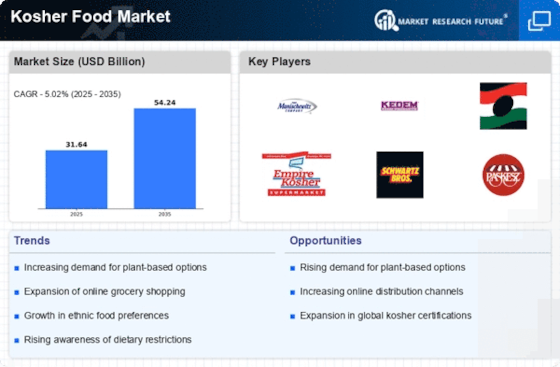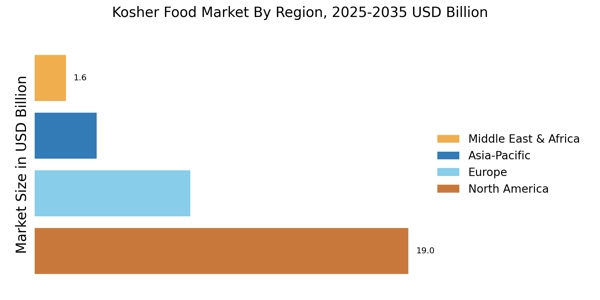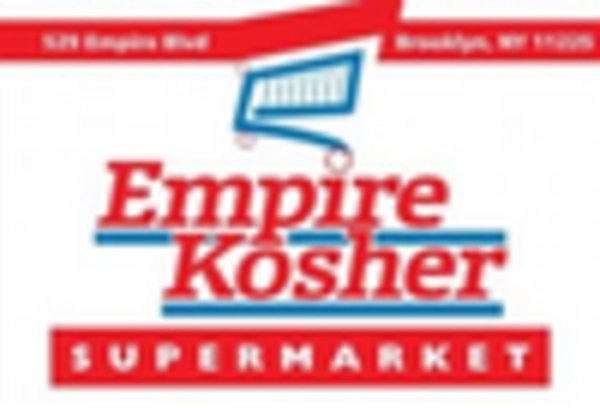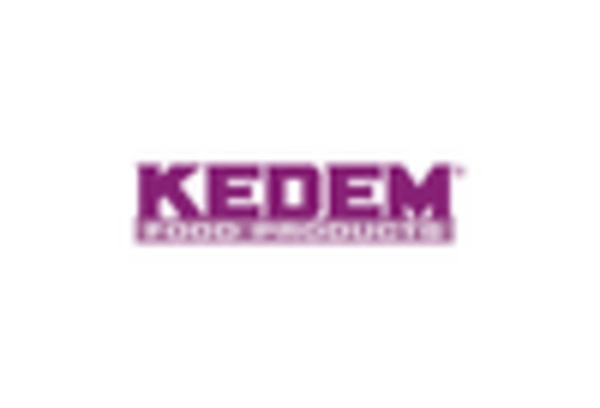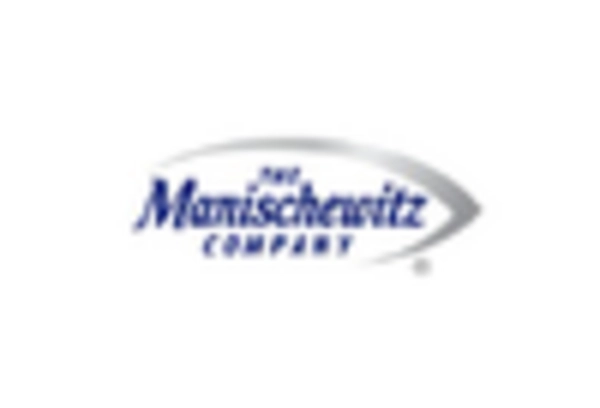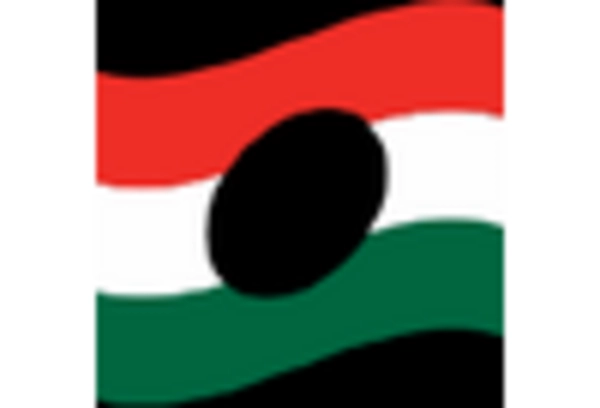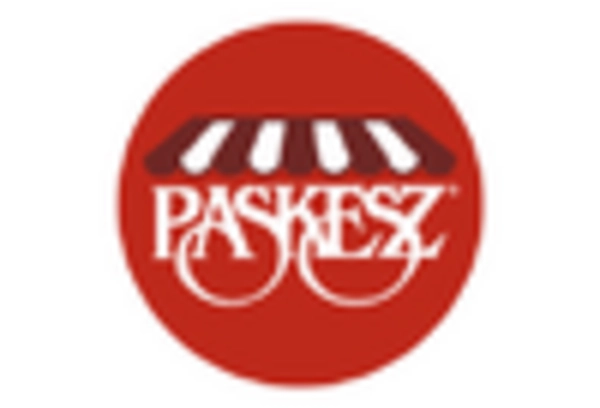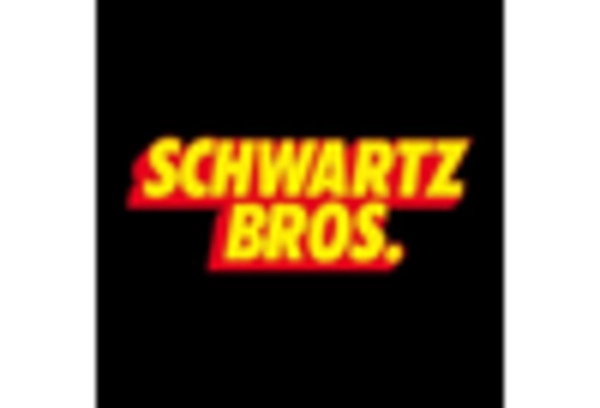Expansion of Retail Channels
The Kosher Food Market is witnessing a significant expansion of retail channels, which is facilitating greater accessibility to kosher products. Traditional grocery stores, specialty shops, and online platforms are increasingly stocking a diverse range of kosher items, thereby catering to a wider audience. Recent data indicates that the number of retailers offering kosher products has increased by over 30% in the past five years. This expansion is not limited to urban areas; rural regions are also seeing a rise in the availability of kosher foods. As more retailers recognize the profitability of catering to this niche market, the Kosher Food Market is poised for continued growth, driven by enhanced distribution networks and consumer convenience.
Innovations in Product Offerings
The Kosher Food Market is characterized by continuous innovations in product offerings, which are essential for attracting a diverse consumer base. Manufacturers are increasingly developing new and unique kosher products, including plant-based alternatives, gluten-free options, and gourmet items. This trend is supported by Market Research Future indicating that the plant-based food sector is expected to reach a valuation of over 74 billion dollars by 2027, with kosher products capturing a notable share of this market. As consumers seek variety and quality, the introduction of innovative kosher products is likely to enhance the overall appeal of the Kosher Food Market, encouraging both traditional and new consumers to explore these offerings.
Cultural and Religious Significance
The Kosher Food Market is deeply intertwined with cultural and religious practices, particularly within Jewish communities. The adherence to kosher dietary laws is not merely a matter of preference but a fundamental aspect of religious observance. As the global Jewish population continues to grow, so does the demand for kosher products. Recent estimates suggest that approximately 14 million Jews reside worldwide, with a significant portion actively seeking kosher-certified foods. This cultural significance extends beyond religious boundaries, as non-Jewish consumers increasingly recognize the value of kosher certification for its quality assurance. Consequently, the Kosher Food Market is likely to benefit from this dual demand, catering to both observant and non-observant consumers who appreciate the standards associated with kosher foods.
Growing Awareness of Ethical Consumption
The Kosher Food Market is benefiting from a growing awareness of ethical consumption among consumers. As individuals become more conscious of the ethical implications of their food choices, kosher certification is often viewed as a marker of responsible sourcing and humane treatment of animals. This trend aligns with broader movements advocating for sustainability and ethical practices in food production. Recent surveys indicate that nearly 60% of consumers are willing to pay a premium for products that align with their ethical values. Consequently, the Kosher Food Market is likely to see an increase in demand as consumers seek out kosher products that not only meet dietary requirements but also resonate with their ethical beliefs.
Increasing Demand for Health-Conscious Foods
The Kosher Food Market is experiencing a notable surge in demand for health-conscious food options. Consumers are increasingly prioritizing dietary choices that align with their health goals, which often includes kosher products due to their perceived quality and adherence to strict dietary laws. This trend is reflected in market data, indicating that the health food segment is projected to grow at a compound annual growth rate of approximately 8% over the next five years. As more individuals seek transparency in food sourcing and preparation, kosher certification serves as a trusted indicator of quality, thereby enhancing the appeal of kosher products to a broader audience. This growing awareness of health and wellness is likely to drive further expansion within the Kosher Food Market.


